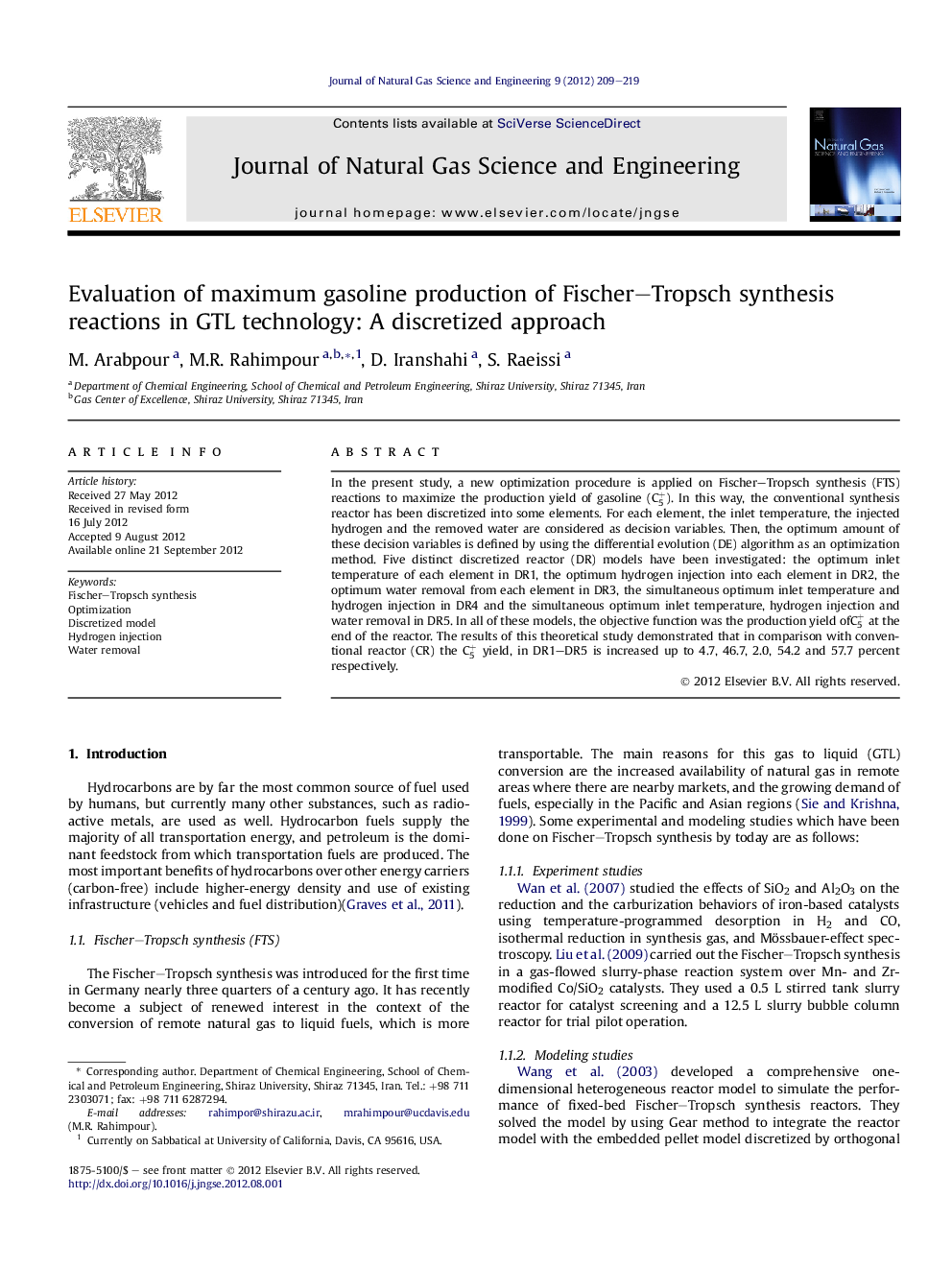| کد مقاله | کد نشریه | سال انتشار | مقاله انگلیسی | نسخه تمام متن |
|---|---|---|---|---|
| 1758155 | 1523031 | 2012 | 11 صفحه PDF | دانلود رایگان |

In the present study, a new optimization procedure is applied on Fischer–Tropsch synthesis (FTS) reactions to maximize the production yield of gasoline (C5+). In this way, the conventional synthesis reactor has been discretized into some elements. For each element, the inlet temperature, the injected hydrogen and the removed water are considered as decision variables. Then, the optimum amount of these decision variables is defined by using the differential evolution (DE) algorithm as an optimization method. Five distinct discretized reactor (DR) models have been investigated: the optimum inlet temperature of each element in DR1, the optimum hydrogen injection into each element in DR2, the optimum water removal from each element in DR3, the simultaneous optimum inlet temperature and hydrogen injection in DR4 and the simultaneous optimum inlet temperature, hydrogen injection and water removal in DR5. In all of these models, the objective function was the production yield ofC5+ at the end of the reactor. The results of this theoretical study demonstrated that in comparison with conventional reactor (CR) the C5+ yield, in DR1–DR5 is increased up to 4.7, 46.7, 2.0, 54.2 and 57.7 percent respectively.
Figure optionsDownload high-quality image (219 K)Download as PowerPoint slideHighlights
► A new discretized model for optimization is carried out in this work.
► Optimum amount of temperature, injected hydrogen and removed water is determined.
► Optimum hydrogen injection had a significant effect on gasoline production.
► The gasoline yield (desirable product) is increased.
► The carbon dioxide (undesirable product) is decreased.
Journal: Journal of Natural Gas Science and Engineering - Volume 9, November 2012, Pages 209–219